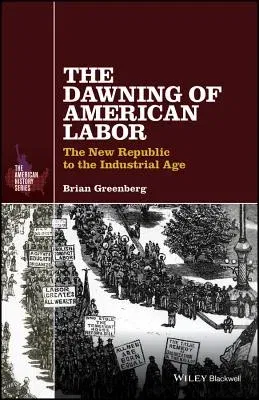A concise history of labor and work in America from the birth of the
Republic to the Industrial Age and beyond
From the days of Thomas Jefferson, Americans believed that they could
sustain a capitalist industrial economy without the class conflict or
negative socioeconomic consequences experienced in Europe. This dream
came crashing down in 1877 when the Great Strike, one of the most
militant labor disputes in US history, convulsed the nation's railroads.
In The Dawning of American Labor a leading scholar of American labor
history draws upon first-hand accounts and the latest scholarship to
offer a fascinating look at how Americans perceived and adapted to the
shift from a largely agrarian economy to one dominated by manufacturing.
For the generations following the Great Strike, "the Labor Problem" and
the idea of class relations became a critical issue facing the nation.
As Professor Greenberg makes clear in this lively, highly accessible
historical exploration, the 1877 strike forever cast a shadow across one
of the most deeply rooted articles of national faith--the belief in
American exceptionalism. What conditions produced the faith in a
classless society? What went wrong? These questions lie at the heart of
The Dawning of American Labor.
- Provides a concise, comprehensive, and completely up-to-date synthesis
of the latest scholarship on the early development of
industrialization in the United States
- Considers how working people reacted, both in the workplace and in
their communities, as the nation's economy made its shift from an
agrarian to an industrial base
- Includes a formal Bibliographical Essay--a handy tool for student
research
- Works as a stand-alone text or an ideal supplement to core curricula
in US History, US Labor, and 19th-Century America
Accessible introductory text for students in American history classes
and beyond, The Dawning of American Labor is an excellent introduction
to the history of labor in the United States for students and general
readers of history alike.

